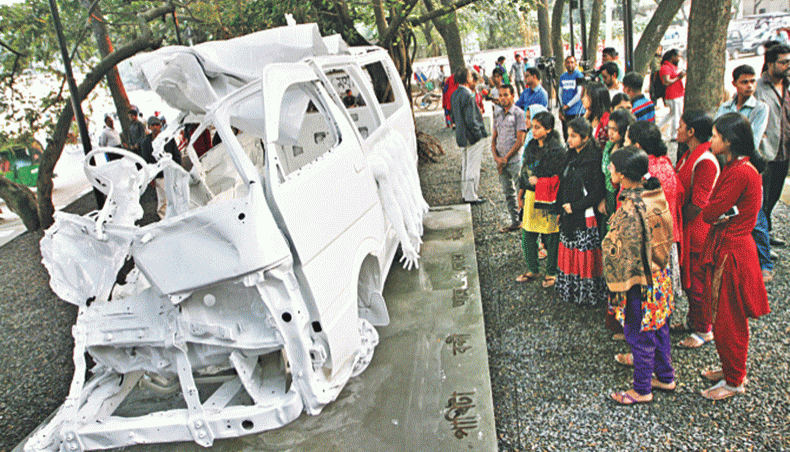Compensation in traffic accident cases
BANGLADESH is one of the countries in the world with the highest casualties in road accidents. The country lost many of her brightest sons in such accidents while lives of common people are lost every day, and every year countless families lose their sole earner. Sadly enough, the victims are deprived of compensation and the perpetrators escape punishment and it is a common scenario of our legal system.
Tareque Masud, a luminary of the film industry died in a road accident as well. However, after five years of legal battle his family has been awarded Tk 4.62 crore as compensation which is unprecedented. The judgement on December 3, 2017 not only was an acknowledgement of the loss of his probable future contributions, but also opened a gateway for seeking compensation for all road accident victims.
The compensation case was filed in 2012. But, the trial in the case began on March 13, 2016 and it took almost one and a half year for the court to order a relief. This long duration unfortunately represents the ugly face of the lengthy process of seeking legal redress in Bangladesh. Almost every case is then further appealed and takes another year for the procedure to finally end in the Appellate Division.
Another problem with compensation cases in general is the authorisation of the payment. Appeals put a halt on everything and more often than not the amount of pecuniary compensation is reduced, if not completely revoked in the Appellate Division. The jurisprudence being totally discretionary, an inconsistency between judgements of the two divisions of court is caused due to the lack of guidelines in affixing the compensation, and absence of existing criteria to scrutinise the violation of rights.
The judiciary has always been evasive in the judgements to show any methods of determining the compensation amount. Money granted by the court in this case is no doubt one of the highest ever. The basis of measurement presented in the full judgement is something to delve into, if any explanation at all is given by the court. Compensation was sought for the loss of care, protection, and nursing of Tareque Masud and his family members, losses of income, medical expenses of claimant, funeral expenses and damage of property. The court is assumed to have taken everything into account since the compensation granted is a huge figure.
Whether life of a common person will amount to similar compensation has been called in question. The High Court observed that the incomes of road accident victims may be different, but their affection and love are equal, and so the compensation should be same for all victims. This view of court purports treating everyone equally and vanquishes the doubt on what the scenario had been in case of an ordinary general person.
Enabling victims to lodge a compensation seeking case at merely Tk 20 can prove to be claimant friendly but only if made time-efficient. The main setback for our justice system is its bothersome time-consuming mechanism. Alarmingly, entertaining compensation cases widely can pressurise the already over burdened courts. The backlog of cases is hindering judges from disposing issues with urgency. Restorative means can be attempted here to make the drivers understand their guilt and responsibilities instead of focusing solely on punishment.
Punishment and fines should be ordered reasonably by the court. The Motor Vehicle Ordinance 1983 regulates the punishment and penalties for offences related to driving vehicle. But the amount of fine prescribed in the less known law seems to be miser and not to commensurate with the gravity of risks involved, let alone work as a deterrent. Then again, if the amount fined is beyond the capacity of the party, certainly there remains scope for a reconsideration of the method of measuring compensation. Failing to compensate makes one unsuccessful in following the order of the court which is intrinsically disrespect towards the judiciary brought unto itself by passing orders which are not feasible.
Bangladesh is developing new legal notions mandatory for modernising the legal system. Judicial activism has prevailed and the judges are being liberal in approving the concept of public law compensation. This monetary form of relief cannot repay the loss suffered, but is a solace to aggrieved persons especially to the poor section of the society. Compensation for road accident victims is a positive inclusion, but the court should not overstep in support of any particular party. Ultimately, a leap forward means more responsibility on the judges to act wisely and assurance of justice for everyone either victim or perpetrator.
News Courtesy: www.newagebd.net











